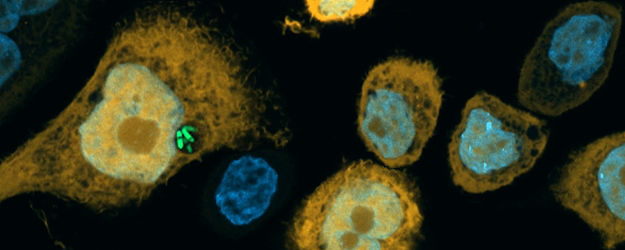Microbes are one of the most important living organisms for humanity. They hold many important roles such as maintaining life on earth, fixing gases, breaking down dead plant and animal matter into simpler substances as well as in our body in helping digest and ferment food. But can we use microbes to detect certain diseases? Microbes are also found all around us, the human body contains millions of these microbes many of these in our blood. Greg Poore was a freshman in college when he lost his grandmother to pancreatic cancer. She died 33 days later from the day she was diagnosed. Poore asked himself if there was any way to detect cancer at earlier stages and started to investigate microbial inhabitants of tumors. Three years later as a medical student in Rob Knights lab at UCSD he decided to take the challenge and find traces of microbes in the blood that might be used to diagnose patients earlier. Poore and his team used a microbial genome and transcriptome information from the database of blood and tissue samples from more than 10,000 cancer patients and compared them with healthy individuals. The results provided evidence of microbial mixes in the cancerous versus healthy tissue of individuals with cancer. They were also able to observe different stages of cancers using microbial DNA and RNA in tumors and DNA in the blood. Understanding microbes and their behavior could open a completely new therapeutic avenue. Poore builds upon findings of numerous reports over the past decade showing that solid tumors are not sterile sites as once thought.
First link: https://www.sciencedaily.com/releases/2020/03/200311123302.htmSecond link: https://www.genome.gov/about-genomics/fact-sheets/Transcriptome-Fact-Sheet
Other interesting article: https://media.nature.com/original/magazine-assets/d41586-020-00637-w/d41586-020-00637-w.pdf

No comments:
Post a Comment